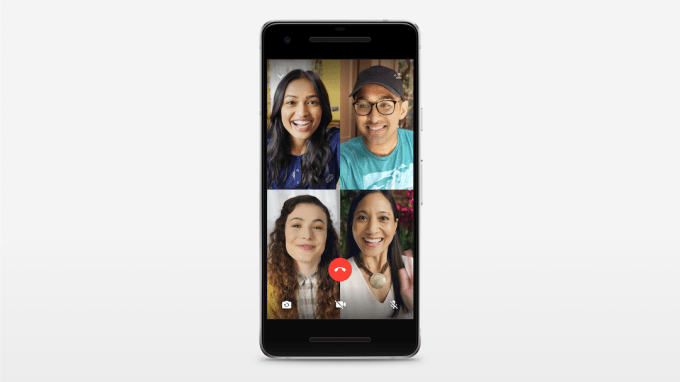WhatsApp has added a much-requested new feature after it began to allow users to make group voice and video calls.
It’s been just over three years since the company, which is owned by Facebook, introduced voice calls and later a video option one year later. Today, WhatsApp counts over 1.5 billion monthly users and it says they make over two billion minutes of calls via its service each day.
Starting this week, callers can now add friends by hitting the “add participant” button which appears in the top right corner of their screen. The maximum number of participants is four and, impressively, WhatsApp said the calls are end-to-end encrypted.
That’s not an easy thing to do. Telegram, a self-professed secure messaging app, hasn’t even gotten around to encrypting its group messaging chats, let alone group calls.

On the encryption side, WhatsApp has long worked with WhisperSystems to cover all messages and calls on its platform from prying eyes and ears. That said, the relationship between the two become a little more complicated this year when WhatsApp co-founder Brian Acton donated $50 million of his wealth — accumulated from Facebook’s acquisition of his company in 2014 — to the Signal Foundation, which is associated with WhisperSystems.
Acton quit Facebook last year — this year he encouraged people to delete the social network for its data and privacy screw-ups — while his fellow WhatsApp co-founder Jan Koum joined him in departing in May of this year.
Like Acton, Koum was apparently irked by scandals such as Cambridge Analytica, although his on record explanation for quitting was to “do things I enjoy outside of technology, such as collecting rare air-cooled Porsches, working on my cars and playing ultimate frisbee.” Each to their own…
from TechCrunch https://ift.tt/2LD7OIB
via IFTTT
Comments
Post a Comment